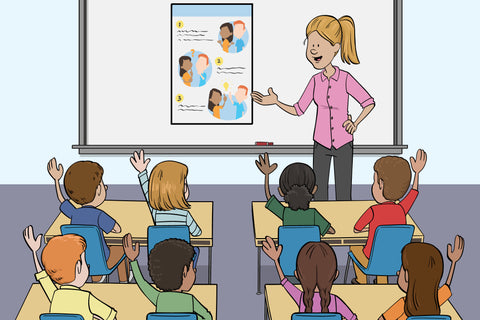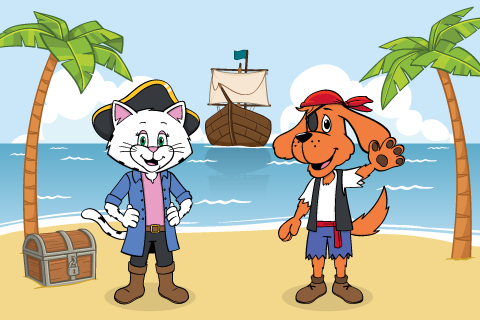Too Good for Drugs empowers teens to meet the challenges of middle school life fostering confidence and building resistance to substance abuse. Students set and reach more complex goals and, in the process, develop and practice stronger decision-making skills and effective-communication skills.
Students also learn to identify and manage their emotions and the emotions of others so they can better relate to others and seek to associate with positive peer groups. Too Good for Drugs addresses environmental and developmental risk factors related to alcohol, tobacco, and other drugs through the development of knowledge, skills, and attitudes teens need to make healthy decisions consistent with their healthy goals.
Substance use topics are discussed in the context of expectations, peer pressure and influence, and the role of the media. In particular, more complex social challenges and influences that present a greater risk for escapism and risky behavior are explored and met with strategies for managing those situations in a positive and healthy way.
Interactive games and activities create an experiential learning environment so students can learn and apply the skills in the classroom setting.
Additional skills and developmental topics build on the core social skill set to broaden the student’s sense of self-efficacy and confidence and are tailored to the intellectual, cognitive, and social development of the student.
- Media Literacy and Media Influence
- Resisting Peer Pressure
- Understanding Peer Influence
- Understanding Addiction
- Complex Social and Dating Relationships
- Exploring Risk Taking and Differentiating Healthy and Unhealthy Risks
Substance use and its effects on the body are introduced when developmentally appropriate. More complex discussions are introduced at the Middle School level and progress in depth as the students mature.
- Safe Use of Prescription and OTC drugs
- Effects of Nicotine Use including ENDS
- Effects of Alcohol Use
- Effects of Marijuana and THC Use
- Effects of Street Drugs including Opioids and Stimulants




